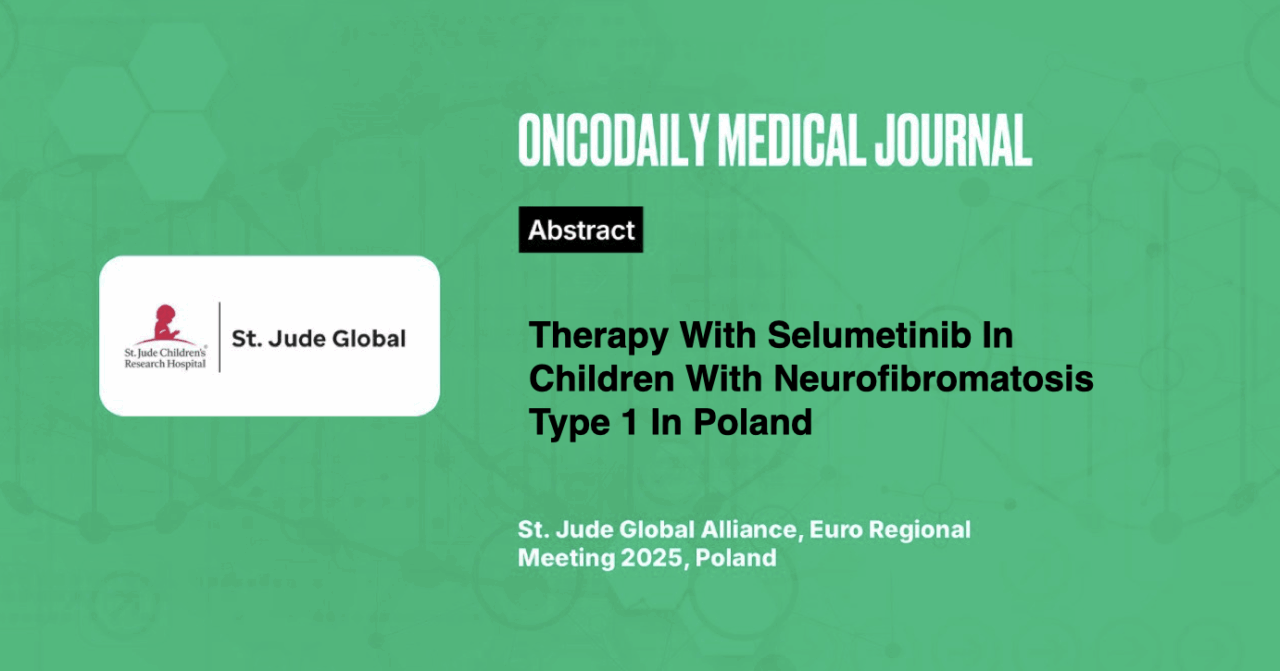Therapy With Selumetinib In Children With Neurofibromatosis Type 1 In Poland
Abstract
Introduction: Children with neurofibromatosis type 1 (NF1) belong to the spectrum of pediatric oncology. Since 2020, a pilot program has been conducted in Poland, currently including six centers for coordinated medical care (CKOM) for patients with neurofibromatoses and related rasopathies (two centers in Warsaw, Bydgoszcz, Gdańsk, Olsztyn, and Kraków). The reimbursement program (B.155) provided by the National Health Fund for the treatment of plexiform neurofibromas (PNF) in patients with NF1 with selumetinib (MEK inhibitor) was introduced in Poland on January 1, 2024. The program is being implemented in 15 hospitals, including centers for coordinated medical care (CKOM). The objective of this study was analyze the effectiveness of the program in its first year of activity.
Methodology: By the end of January 2025, a total of 73 patients were included in the program: 46 males (63%) and 27 females (37%), aged 3 to 18 years (median: 12 years), with variable geographical distribution.
Results: Data collected from 39 patients included within the first period (January 1, 2024 – June 30, 2024) allowed for the evaluation of the results of the first four months of therapy in 11 patients. Six patients (54.5%) experienced partial regression of the PNF, while five (45.5%) had stable disease. None of the patients experienced lesion progression. The median tumor size reduction was 27%. The most common adverse effects observed so far in the study were acne-like rash and increased CPK levels. Significantly intensified adverse effects requiring dose reduction were observed only in isolated cases.
Conclusion: Selumetinib is an innovative drug that brings new hope for patients with PNF in the course of NF1. The results observed so far are more than promising; however, further research and data collection are needed to fully analyze the effectiveness of the treatment. With the reimbursement program, an increasing number of patients, and growing medical interest, new recommendations have been prepared for medical personnel.





